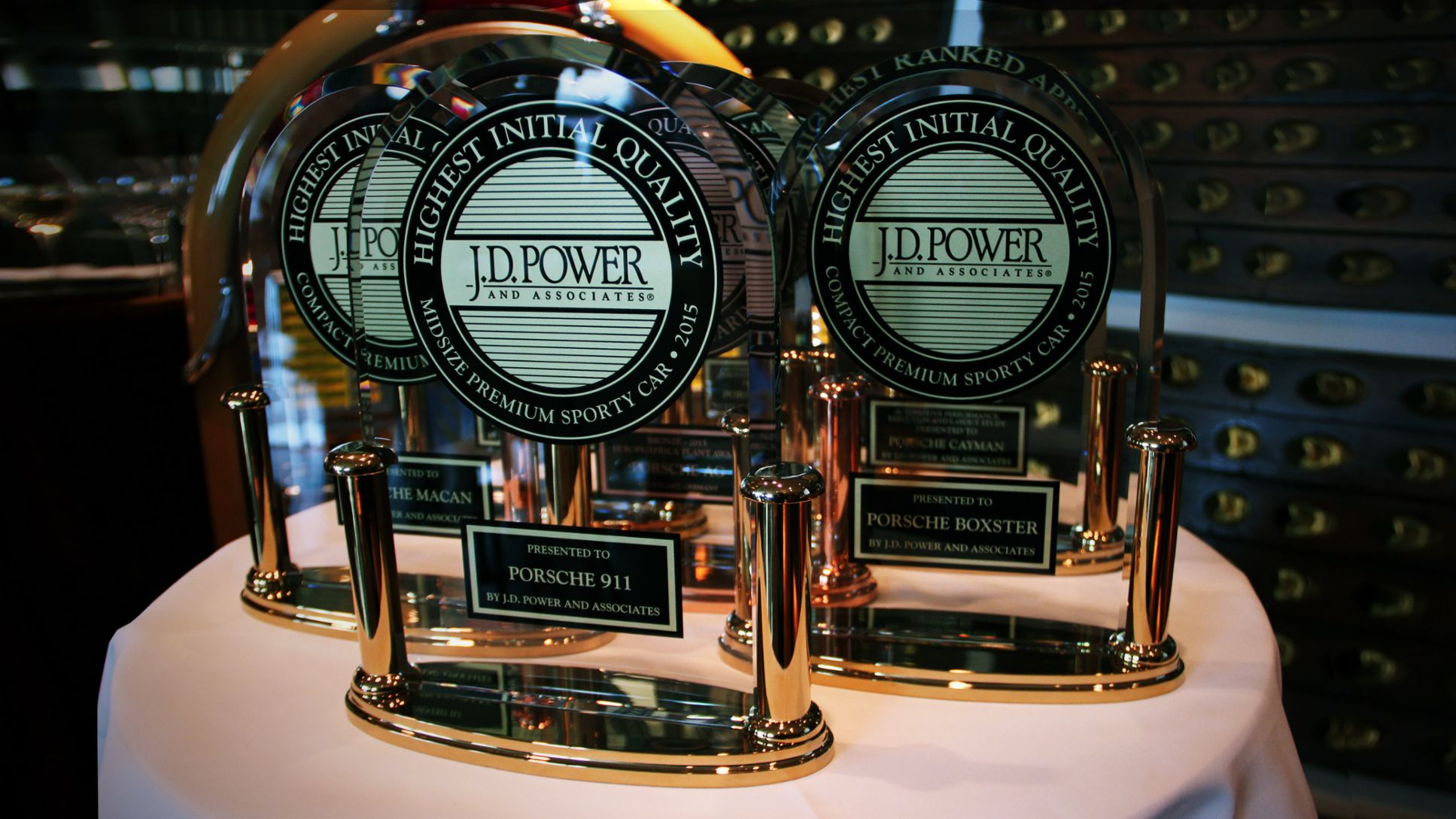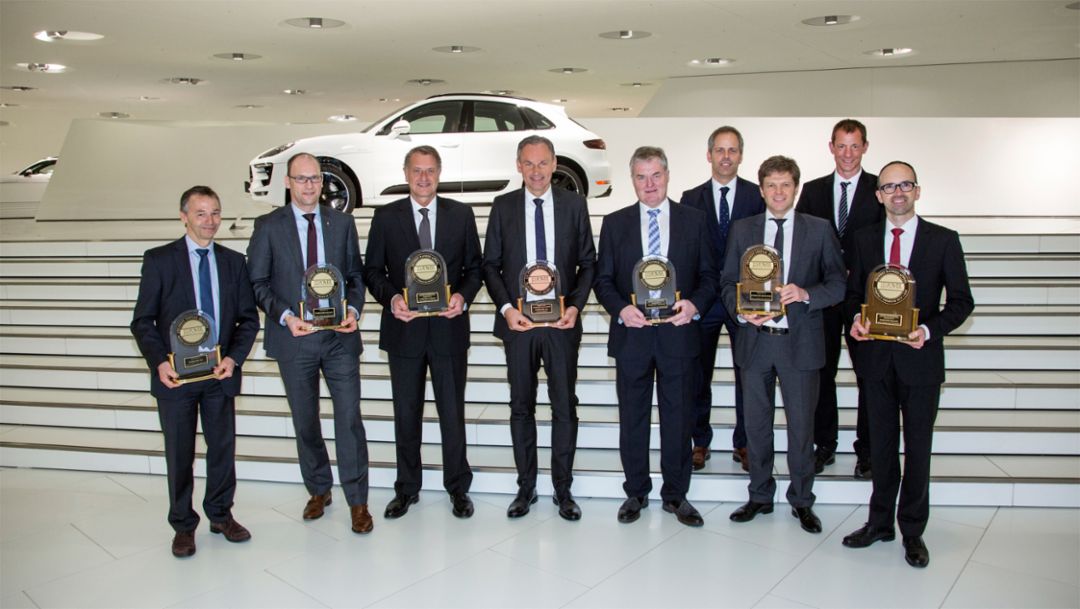The market research company J.D. Power has again awarded Porsche vehicles top marks, and, for the third time in succession, the sports car maker has secured its highest ranking among nameplates in the “Initial Quality Study” (IQS). In the study “Automotive Performance, Execution and Layout” (APEAL) the company has achieved this highest ranking among nameplates for the eleventh time.
Worthy of particular note is the fact that the Macan entered the rankings for the first time following its market launch in 2014 and immediately ranks highest in its segment for both studies.
The other models put up convincing performances, too. In the APEAL study, both the Cayenne and Cayman ranked highest within their respective categories. In the IQS study, the 911 achieved the highest segment ranking, as did the Boxster. In addition, the Porsche plant in Zuffenhausen has been awarded the “Plant Quality Award 2015” in bronze.
The awards were presented to Porsche in the presence of Dr Oliver Blume, Chairman of the Executive Board, and Detlev von Platen, Member of the Executive Board for Sales and Marketing. “How successful Porsche is depends on the satisfaction of our customers,” said Blume. “We are therefore especially proud of these honours from J.D. Power.” At the same time, he remarked that the good rankings brought with them an obligation to ensure the continuing top quality of the vehicles.
In conducting each of the two studies, J.D. Power questioned more than 84,000 owners of new cars in the USA. The APEAL study considers a total of 77 attributes in ten categories – among them driving dynamics, design and everyday utility – while the IQS counts problems with the vehicles during the first 90 days of ownership.
But how exactly does the market research institute work? A glimpse behind the scenes of J.D. Power.
IQS
Porsche Boxster: “Compact Premium Sporty Car”, highest score
Porsche 911: “Midsize Premium Sporty Car”, highest score
Porsche Macan: “Compact Premium SUV”, highest score
Porsche plant in Zuffenhausen: “Plant Quality Award 2015”, 3rd place
APEAL
Porsche Macan: “Compact Premium SUV”, highest score
Porsche Cayenne: “Midsize Premium SUV”, highest score
Porsche Cayman: “Compact Premium Sporty Car”, highest score

